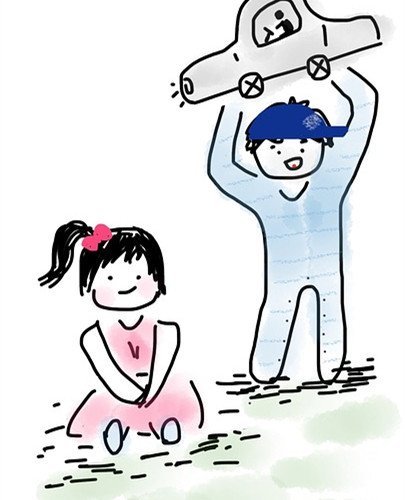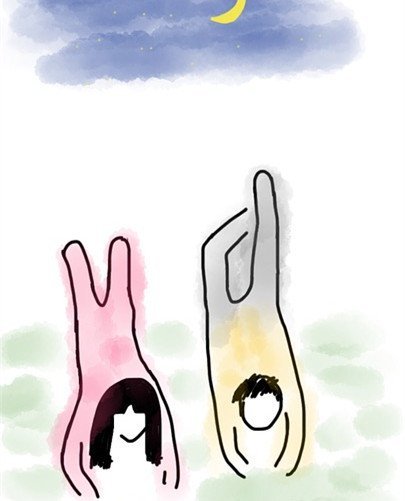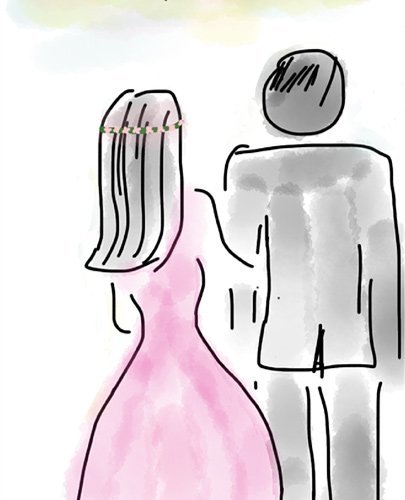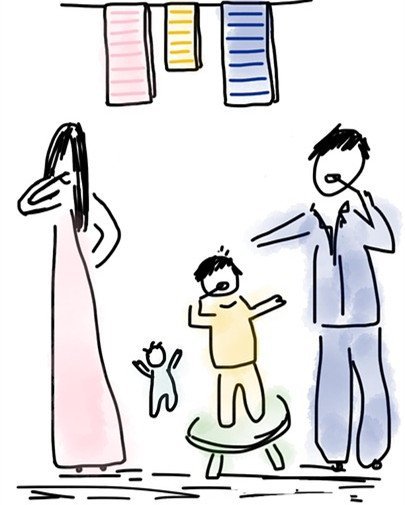Mr.? Mrs.? Lily? Huang? How to Address Your Life Partner in China

Today I will introduce to you one of my favorite lessons that I teach my foreign students. This topic is about how we address each other in China. It’s quite different from how people in the west address each other. In particular, I will explain to you all of the different ways that a man might address his wife throughout their lifetime together.
Nǐ jiào shénme míngzi?
你 叫 什么 名字?
What is your name?
This question is fairly straightforward in western countries. In professional situations, you may include your job title. In educational situations, “Mr.” and “Mrs.” may be used. In friendly, social situations, when it comes to addressing one another, first names are generally used in western countries. However, in China, we will usually introduce ourselves with:
First: family name 姓 (xìng)
Second: given name 名 (míng)
Until two people are particularly close to one another, they will not address each other by their given names. As an example of this complicated process of how we address one another in China, I will introduce the example of a character I call “Mr. Zhang” and how he addresses his future wife and mother of his children throughout their lifetime together.
We can look at this as a series of six stages:
1. 初见 (Chūjiàn) First meeting.

From the first time that Mr. Zhang meets his future wife, he may call her “李丽红 (Lǐ Lìhóng)”. In Chinese, 李 (Lǐ) is the family name, and 丽红 (Lìhóng) is the given name of the woman. In China, when we meet or are introduced to strangers, we will address them by family name and then given name. This formality indicates that the relationship is not yet very close. If Mr. Zhang were to address his future wife as “丽红 (Lìhóng)” when they just met, he would be seen as overly bold and presumptuous.
2.熟悉 (Shúxī) Be familiar with each other.

As Mr. Zhang begins dating 李丽红 (Lǐ Lìhóng) 1-on-1, Mr. Zhang will begin to call her 丽红 (Lìhóng), omitting the family name. This indicates a closer relationship between the two, as he now uses the first name to replace the full name that he used before.
3.恋爱 (Liàn’ài) In a relationship.

Once Mr. Zhang becomes even closer with 李丽红 (Lǐ Lìhóng), to the point he considers her his girlfriend, Mr. Zhang will simply call his girlfriend 红 (Hóng), which expresses that the two of them are committed and in a more comfortable status.
4.结婚 (Jiéhūn) Married.

As you know, first comes love, then comes marriage. Once married, Mr. Zhang will refer to his wife as 红红 (Hónghong) or 小心肝 (xiǎoxīngān). 小心肝 (xiǎoxīngān) has same meaning as “darling”, or “dear” in English. 红红 (Hónghong), a repetition of the first given name, is an affectionate term that is a way to address those closest to you.
5.生小孩 (Shēng xiǎohái) Have Children.

Upon the birth of their child together, Mr. Zhang will again address his wife as “红 (Hóng)”.
6.离婚 (Líhūn) Divorced.

As the couple enters middle age, the husband may call the wife 丽红 (Lìhóng), just as he did when they were introduced so many years ago. This especially true if the couple divorces. In the case of divorce, Mr. Zhang will certainly refer to his ex-wife as 李丽红 (Lǐ Lìhóng).
So, just as every relationship goes through its stages and steps, so does the way that Mr. Zhang should properly address his girlfriend and wife.
My foreign students seem to really enjoy this lesson, as it’s an indicator of the formalities and peculiarities different between Chinese and Western culture and language. I hope you’ve enjoyed it, too!
Quiz:
1. In the story, we introduced a female character named 李丽红 (Lǐ Lìhóng). When you address her as “丽红 (Lìhóng)” in a greeting, you are calling her by her______.
A. Given name, followed by family name
B. Given name
C. Family name, followed by given name
D. Family name only
Source:echineselearning